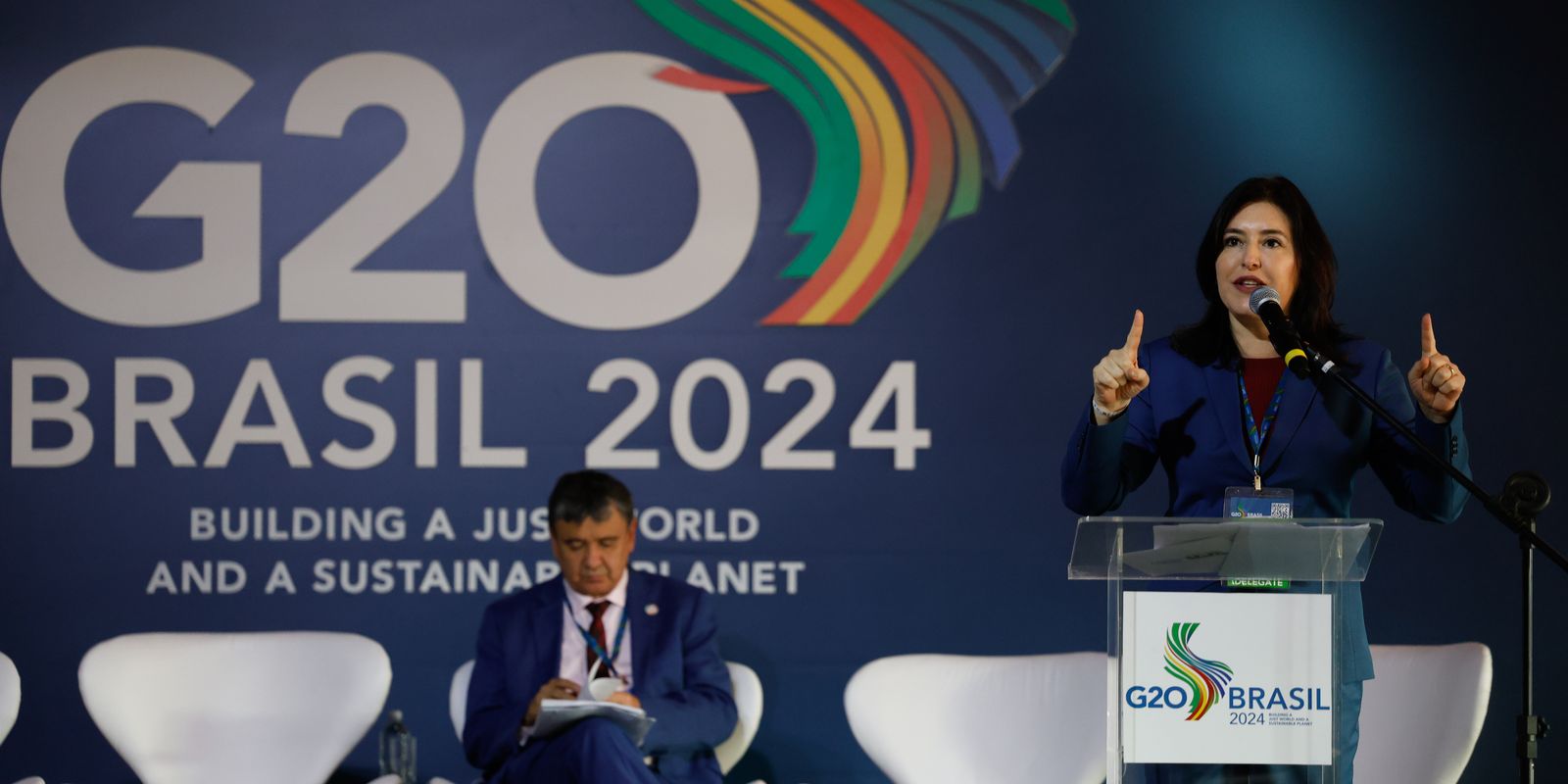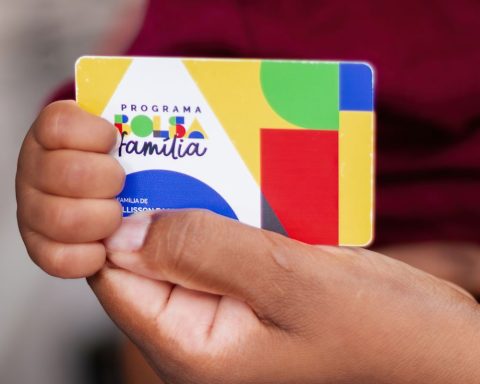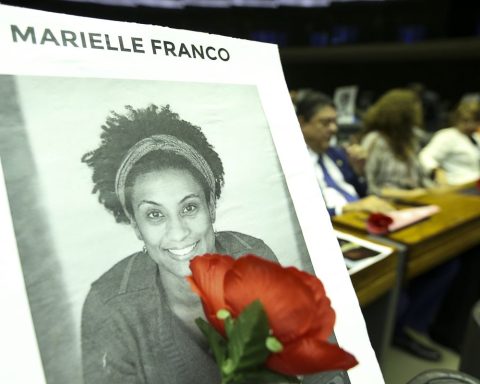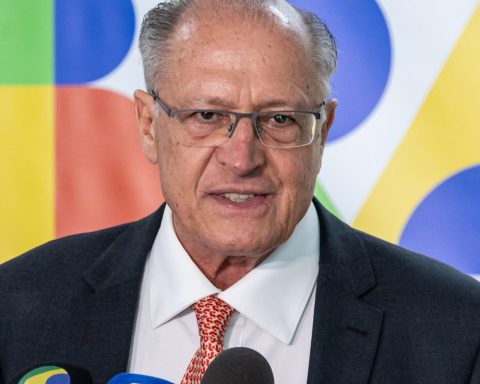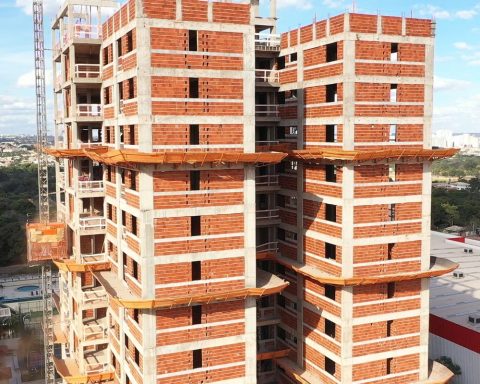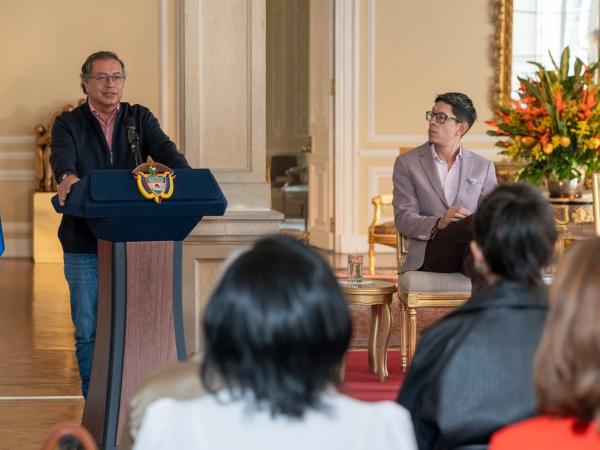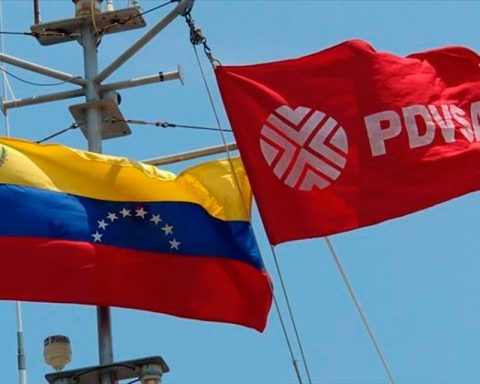The Minister of Planning and Budget, Simone Tebet, stated this Tuesday (23) that social programs are not a problem for the Brazilian budget. On the other hand, the minister defended the need for a review of tax expenditures. The statements come amid the government’s decision to freeze R$15 billion of the 2024 budget.
“The problem with spending in Brazil is not the poor in the budget. It is the privileges of the rich that need to be checked point by point. What is effectively given up in the form of revenue must also come in the form of policies that serve the collective interest. Tax spending in Brazil has grown infinitely more than spending on social policies.” According to Simone Tebet, the evolution of tax spending has been in line with successive governments.
“10 years ago, or a little more than that, they represented around 2% of GDP [Produto Interno Bruto, soma dos bens e serviços produzidos no país]. These are budget waivers that we make for the productive sector, which is necessary for it to generate jobs. But the question is: how many of these tax expenditures, how many of these tax incentives are still effective in terms of promoting social justice? Today, these tax expenditures correspond to more than 5% of GDP. We are talking about a waiver of around R$615 billion. Let’s remember that Bolsa Família, for example, costs something around R$160 billion,” he added.
After announcing the freezing of R$15 billion, the government has stated that the generation of new revenues could allow for a partial reversal of the cuts. The main bet in this sense is related precisely to tax expenditures. A decision by the Federal Supreme Court (STF) published in May determined the need for a source of financial compensation for the payroll tax relief until 2027, which was extended as law passed by Congress last year. Without compensation, the benefit granted to companies and municipalities may lose its validity. The matter has been the subject of negotiations between the government and Congress.
Although she defended social programs, the minister stated that it is necessary to ensure their proper implementation. The government’s economic team has made it clear that one of the efforts aligned with the budget freeze will involve a systematic review of the granting of social security services, the Continuous Benefit Payment (BPC), the Defeso Insurance, the Agricultural Activity Guarantee Program (Proagro) and other measures.
“We need to assess whether there are errors, fraud or irregularities because we had a pandemic that messed up public policies a bit. But what is being allocated in the right way to those families that really need it, these programs need to be strengthened. This is not the problem of the fiscal deficit or the growth of Brazilian debt in relation to GDP. We will not discontinue these public policies. We will attack the efficiency of these expenditures,” Tebet reiterated.
Cut details
The freezing was officialized by the government this Monday (22). Of the R$15 billion to be suspended, R$11.2 billion will be blocked; and R$3.8 billion will be contingent.
Both contingency and freeze represent temporary spending cuts. The new fiscal framework, however, has established different motivations. A freeze occurs when government spending exceeds the limit of 70% of revenue growth above inflation. A contingency occurs when there is a lack of revenue that compromises compliance with the primary result target (result of government accounts without interest on public debt).
According to the minister, the government should detail the planned measures on July 30. “Where the cuts will be made and who will have the biggest cuts will be established by a presidential decree,” she said. Simone Tebet also said that there will soon be a presentation, on a date to be announced, on the revisions to spending with a view to achieving the zero deficit target this year. Further details of the plan will be released at the same time. cut of R$ 25.9 billion in the 2025 budget bill, which had been announced by Finance Minister Fernando Haddad.
G20
The minister’s statements came at the end of her participation in the panel “Combating inequalities and eradicating poverty, hunger and malnutrition”, which is part of the parallel program of the G20 Development Ministerial Meeting. In her presentation, Simone Tebet pointed out global contradictions.
“While science seeks alternatives, vaccines, and medicines to combat diseases, we still have millions of people on the planet dying because they do not have access to drinking water or even water to bathe in. While we are in the 21st century, while we are talking about the digital age, the internet, cell phones, and artificial intelligence, unfortunately we have millions of people dying of hunger every year. It is no wonder that President Lula chose the eradication of poverty, the fight against hunger, and social inequality as the main agendas of the Brazilian presidency of the G20,” he said.
Tebet argued that reducing social inequalities in Brazil depends on increasing the minimum wage. “The priority of our economic team, the Ministry of Finance and the Ministry of Budget, is for the minimum wage to always grow above inflation.” The minister also stated that Brazil has been trying to do its homework.
“In just a year and a half, this government has lifted 24 million Brazilians out of a situation of serious food insecurity. It is true that we have around 60 million people with some type of food insecurity in Brazil. And it is important to remember that inequality is so perverse that it even chooses gender, age, color and race. The poorest person in Brazil is always the person of a woman, always the person of a woman with many children, always the person of a black or brown woman from the North or Northeast.”
Also present at the event, the Minister of Development and Social Assistance, Family and Fight Against Hunger, Wellington Dias, demanded greater responsibility from the states. “Two centuries ago, the income of the richest was 18 times greater than that of the poorest. Today, the income of the richest is 38 times that of the poorest. The richest 10% in the world hold 76% of the planet’s wealth. Meanwhile, the poorest 50% have only 2%. More than 700 million people are going hungry on a planet that produces more than enough food to sustain everyone,” he said.
Brazilian Presidency
The Brazilian presidency of the G20 is carrying out an intense program throughout this week. The G20 Development Ministerial Meeting, which began this Monday (22), is part of this agenda. This morning (23), the second session took place, whose agenda included topics related to the combating inequalities. The Minister of Foreign Affairs, Mauro Vieira, assessed that the challenges posed demand joint efforts short term.
The world’s 19 largest economies, as well as the European Union and, more recently, the African Union, have seats in the G20. The group has established itself as a global forum for dialogue and coordination on economic, social, development and international cooperation issues. In December of last year, Brazil succeeded India as president. This is the first time that the country has held this position in the current G20 format, established in 2008. At the end of the year, Rio de Janeiro will host the G20 Summit, and the presidency of the group will be transferred to South Africa.
